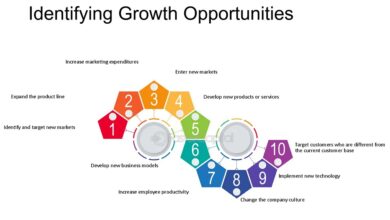What Business is Successful to Start? Exploring Your Path to Entrepreneurship

Starting a business is a thrilling journey that opens up endless possibilities for success. But with countless options available, how do you decide which business venture is right for you? In this article, we’ll delve into the realm of entrepreneurial pursuits and guide you through the process of identifying a successful business to start. Let’s embark on this exciting adventure together! This article is prepared by Shopomania.net.
Self-Exploration: Finding Your Passion and Strengths
Every successful business starts with a passionate entrepreneur. What are you truly passionate about? What are your strengths and skills? Identifying these attributes can guide you toward a business that aligns with your personal and professional goals.
Market Research: Identifying Lucrative Niches
Thorough market research is crucial to identifying what are profitable business ideas. Look for gaps in the market, emerging trends, and underserved niches. What’s important is that a successful business caters to a specific need or problem.
Solving Problems: Addressing Pain Points in the Market
Successful businesses provide solutions to problems. What pain points exist in your chosen niche? How can you address these issues in a unique and effective way?
Innovation and Uniqueness: Standing Out from the Crowd
Innovation sets you apart. What makes your business unique? How can you offer something different from your competitors? Innovation not only attracts customers but keeps them engaged.
Feasibility Assessment: Analyzing Resources and Budget
Before diving in, assess the feasibility of your business idea. Do you have the necessary resources and budget? A well-planned financial strategy is essential for a successful start and sustained growth.
Creating a Solid Business Plan
A business plan is your roadmap to success. Outline your goals, target audience, marketing strategies, and financial projections. A clear plan helps you stay focused and organized.
Building Your Brand: The Power of Effective Branding
Branding goes beyond logos and colors. It’s about the perception customers have of your business. A strong brand identity builds trust and loyalty among your audience.
Navigating Legalities and Regulations
Understanding legal requirements and regulations is vital. Register your business, acquire necessary licenses, and comply with industry standards. Navigating legalities ensures a smooth operation.
Testing the Waters: Minimum Viable Product (MVP) Approach
Instead of launching a full-fledged product, consider an MVP. This approach allows you to test your idea with minimal resources and gather valuable feedback for improvements.
Scaling Up: Strategies for Growth and Expansion
A successful business doesn’t remain stagnant. Have strategies in place for scaling up your operations. This could involve expanding your product line, entering new markets, or forming partnerships.
Adapting to Changes: The Resilience Factor
The business landscape is dynamic. Successful entrepreneurs adapt to changes and challenges. Build resilience to navigate economic fluctuations and unexpected obstacles.
Customer-Centric Approach: Building Strong Relationships
Customers are the heart of your business. Focus on building strong relationships and providing exceptional customer experiences. Satisfied customers become brand advocates.
Measuring Success: Key Performance Indicators (KPIs)
How will you measure success? Identify key performance indicators (KPIs) that align with your business goals. Tracking progress helps you make informed decisions for growth.
Conclusion
Embracing sustainability, learn how to market an eco-friendly business successfully by blending passion, innovation, strategic planning, and customer-centric approaches on your entrepreneurial journey. By following these guidelines and embracing the ever-evolving nature of entrepreneurship, you can lay a strong foundation for your business’s success.
FAQs
- How do I choose the right business idea for me?
Choosing the right business idea involves evaluating your passions, strengths, and market opportunities. Finding the intersection of these factors can guide your decision.
- Is it necessary to have a formal business plan?
Yes, a formal business plan provides clarity and direction. It outlines your goals, strategies, and financial projections, which are essential for attracting investors and staying on track.
- How can I stand out in a competitive market?
Innovation and uniqueness are key. Identify what sets your business apart and how you can provide value that your competitors don’t.
- What role does customer experience play in business success?
Customer experience is paramount. Satisfied customers not only return but also spread positive word-of-mouth, contributing to your business’s growth.
- How do I adapt my business to changing circumstances?
Adaptation requires flexibility and foresight. Stay updated on industry trends, monitor customer feedback, and be prepared to pivot your strategies when necessary.




